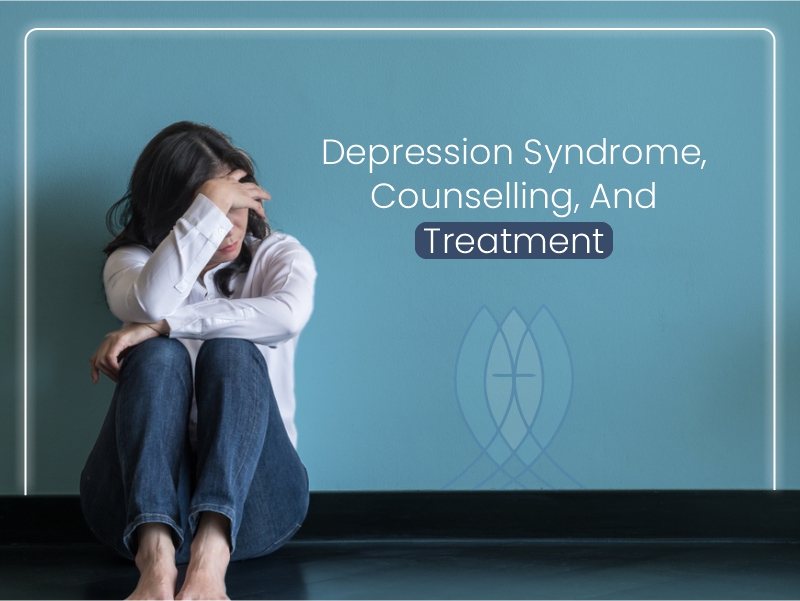Start your journey with counselling for anxiety disorder led by professionals
Start your journey with counselling for anxiety disorder led by professionals
Blog Article
Exploring Different Strategies in Counselling for Anxiousness Disorder for Enduring Modification
When dealing with anxiousness problems, it's important to check out a selection of counseling approaches. Each technique supplies unique understandings and devices to aid you handle your signs effectively. You may find that combining methods can yield the most effective outcomes. Recognizing the nuances of these techniques is crucial to promoting lasting adjustment. What happens if the best combination could launch a new degree of emotional wellness for you?
Recognizing Anxiety Problems: A Quick Introduction
Stress and anxiety problems, which influence countless individuals worldwide, can greatly influence life. You could experience overwhelming sensations of fear or worry that seem uncontrollable. These sensations can cause physical signs like a racing heart, sweating, or also dizziness. Usual sorts of anxiousness conditions include generalized anxiousness condition, panic attack, and social stress and anxiety disorder. Each has one-of-a-kind indications, however they all share a propensity to interrupt your regular and relationships.Understanding the root causes of your anxiousness is important. It could come from genes, brain chemistry, or life experiences. Recognizing your triggers can aid you handle your reactions much better. It is very important to keep in mind that you're not the only one in this battle. Lots of people encounter comparable challenges, and seeking assistance is a solid action toward sensation much better. By finding out about anxiety problems, you're already on the course to understanding and handling your condition extra effectively.
Cognitive-Behavioral Treatment: Challenging Unfavorable Thought Patterns

Recognizing Adverse Thought Triggers
Acknowledging the certain triggers behind your adverse thoughts can be essential in managing anxiousness when you experience minutes of distress. Begin by taking notice of situations that provoke feelings of fear or fear. Is it a congested space, a future due date, or a conversation with specific people? Take down these circumstances in a journal. This will help you recognize patterns in your reasoning. Notification physical feelings that accompany your unfavorable thoughts, like a racing heart or tightness in your chest. By identifying these triggers, you get understanding right into what's fueling your anxiousness. Comprehending these connections is the primary step in challenging those ideas and eventually restoring control over your emotional actions.

Changing Ideas With Positives
Testing adverse thought patterns is an important action in changing your frame of mind and minimizing anxiousness. You may typically locate yourself trapped in cycles of self-doubt or catastrophic thinking. Rather than letting these ideas determine your feelings, method replacing them with realistic choices or positive affirmations. When you think, "I can not handle this," move it to, "I can manage challenges one step at a time." This basic adjustment can greatly impact your psychological state. Regularly identifying and countering these negative ideas helps create a much healthier inner discussion. Bear in mind, it requires time and initiative, yet consistently practicing this strategy can lead to long lasting change, empowering you to encounter anxiety with restored self-confidence and resilience
Structure Coping Methods With Each Other
Replacing adverse thoughts is only the start of taking care of stress and anxiety properly. To develop enduring adjustment, you require to build coping strategies that equip you. Cognitive-Behavioral Therapy (CBT) assists you determine and challenge those purposeless thought patterns. Together, you and your counselor can explore exactly how these thoughts impact your feelings and behaviors.Start by establishing practical techniques, like journaling or mindfulness workouts, that allow you to challenge anxiousness head-on. When you face your fears progressively, you'll find out to react differently.

Mindfulness and Acceptance-Based Approaches: Growing Present-Moment Awareness
As you browse the intricacies of anxiousness, incorporating mindfulness and acceptance-based approaches can substantially boost your capacity to cultivate present-moment awareness. By concentrating on the present moment, you'll find that you can observe your ideas and feelings without judgment. This method aids you recognize your stress and anxiety without feeling overwhelmed by it.Engaging in mindfulness workouts, such as deep breathing, body scans, or directed reflections, allows you to ground on your own in your present experience. Acceptance-based methods encourage you to embrace your feelings as opposed to deal with versus them. When you accept your feelings, they lose their power over you.Incorporating these methods right into your daily routine can change just how you respond to anxiousness. You'll establish strength and discover to browse difficult circumstances with greater convenience. Eventually, growing present-moment awareness lays the structure for long-term adjustment, equipping you to lead a much more meeting life.
Direct Exposure Therapy: Challenging Fears Progressively
Exposure therapy helps you challenge your anxieties in a gradual means, making it less overwhelming. You'll learn strategies to deal with anxiety-provoking situations detailed, while additionally developing coping techniques to handle your reactions. This approach empowers you to take control and reduce anxiety with time.
Progressive Direct Exposure Strategies
When encountering anxiety, progressively facing your anxieties can be a powerful means to restore control. This strategy, understood as steady exposure, includes gradually subjecting on your own to the circumstances or objects that trigger your anxiousness. Begin with much less intimidating circumstances and slowly work your method as much as even more difficult ones. As an example, if you hesitate of public speaking, you could start by talking before a mirror, then advance to sharing ideas with a close friend, and eventually resolve a tiny team. Each step aids desensitize you to the worry, developing your confidence gradually. Bear in mind, it's necessary to speed on your own and commemorate small victories as you move with this process, reinforcing your ability to take care of stress and anxiety properly.
Building Coping Approaches
Structure reliable coping strategies is crucial for handling anxiety, specifically as you confront your concerns progressively. One powerful method is exposure therapy, where you start by facing your worries in a controlled manner. Begin with less daunting circumstances and gradually work your way as much as even more difficult scenarios. This progressive exposure aids desensitize you to anxiousness sets off, making them less overwhelming.Incorporate leisure strategies, such as deep breathing or mindfulness, to relax your mind during direct exposure. Track your progress, celebrating little victories along the road to improve your confidence. Keep in mind, it's okay to take your time; the goal isn't excellence but consistent enhancement. By developing these approaches, you'll empower on your own to browse anxiousness and accept life extra completely.
Psychodynamic Treatment: Revealing Origin Causes of Anxiety
Psychodynamic therapy discovers the unconscious mind, revealing the root creates of your anxiety - Counseling services for anxiety. By analyzing your ideas, sensations, and past experiences, this method assists you uncover underlying disputes and unsettled concerns that might add to your current anxiety. You'll deal with a therapist to check out youth experiences, connections, and emotional patterns that form your responses today.As you acquire insight right into these much deeper layers of your psyche, you'll begin to acknowledge exactly how previous occasions affect your present habits. This understanding can result in catharsis, enabling you to process emotions you may have suppressed.Through the healing connection, you can additionally recognize protection systems that might have created over time, using a clearer path to transform. Ultimately, psychodynamic treatment furnishes you with the tools to resolve your stress and anxiety at its core, advertising lasting transformation in your emotional health
Integrative and Holistic Methods: Incorporating Strategies for Greater Efficacy
Incorporating different restorative methods can enhance your trip towards handling stress and anxiety better. By combining components from cognitive-behavioral therapy, mindfulness methods, and holistic methods, you can develop an individualized method that resolves your special needs. As an example, you could use cognitive-behavioral techniques to test negative idea patterns while incorporating mindfulness workouts to ground yourself in the here and now moment.Additionally, discovering holistic practices such as yoga exercise or meditation can advertise relaxation and lower anxiety signs and symptoms. This blend enables you to create greater self-awareness and resilience.Experimenting with these varied methods can assist you uncover what resonates most with you. Keep in mind, it's concerning discovering a harmony that functions, rather than staying with a solitary approach. This integrative method not just supplies instant relief but likewise cultivates lasting skills for taking care of stress and anxiety, equipping you to redeem control over your life.
The Role of Support Systems: Building Durability With Link
While it might appear that handling anxiety is a solitary trip, having a strong support system can play an important function in your strength. Surrounding yourself with compassionate buddies, family members, or support system produces a secure space where you can openly share your feelings and experiences. When you get in touch with others, you remind yourself that you're not the only one in this struggle.These relationships provide encouragement and can supply useful coping strategies that have benefited others. It's additionally a possibility to gain perspective; good friends can aid you see circumstances in different ways, reducing feelings of isolation.Moreover, emotional support promotes a feeling of belonging, check here which can greatly minimize anxiety signs and symptoms. By leaning on your support group, you can build resilience and tackle difficulties better. Keep in mind, connecting for help is a sign of strength, and it can make all the distinction in your journey toward handling stress and anxiety.
Frequently Asked Concerns
What Are the Usual Signs And Symptoms of Stress And Anxiety Problems?
You could experience uneasyness, fatigue, trouble concentrating, irritability, muscle stress, and sleep disturbances. Physical signs and symptoms can include rapid heart beat, sweating, and shivering. Acknowledging these signs early can help you look for ideal support and treatment.

Just How Lengthy Does Therapy Normally Last for Anxiousness Conditions?
Therapy for anxiety conditions normally lasts anywhere from a couple of weeks to a number of months. It actually depends on your specific demands, progression, and the strategies your specialist uses to aid you manage your anxiety efficiently.
Can Drug Be Used Along With Therapy for Stress and anxiety?
Yes, medication can absolutely be utilized along with treatment for anxiousness. Combining both techniques often improves treatment performance, aiding you take care of signs while checking out underlying concerns through counseling. Constantly consult your doctor for personalized recommendations.
Exist Self-Help Approaches for Taking Care Of Anxiety?
Yes, there are several self-help methods for handling stress and anxiety. You can practice mindfulness, take part in routine exercise, keep a well balanced diet plan, develop a regular, and make use of deep breathing methods to help in reducing anxiousness symptoms efficiently.
Exactly how Do I Know if I Need Professional Aid for Stress And Anxiety?
You must think about looking for expert help for stress and anxiety if it disrupts everyday life, causes substantial distress, or if self-help techniques aren't functioning. Count on your instincts; getting to out can cause far better coping abilities and support. Typical kinds of stress and anxiety problems include generalized stress and anxiety disorder, panic problem, and social anxiousness condition. When you encounter moments of distress, recognizing the particular triggers behind your negative ideas can be necessary in managing stress and anxiety. Replacing adverse ideas is just the beginning of managing anxiety successfully. By examining your thoughts, sensations, and previous experiences, this approach aids you discover underlying disputes and unsettled problems that might add to your existing anxiety. It's also an opportunity to acquire point of view; friends can help you see circumstances differently, lowering sensations of isolation (Counseling services for anxiety).Moreover, emotional assistance promotes a feeling of belonging, which can substantially minimize anxiety signs and symptoms
Report this page